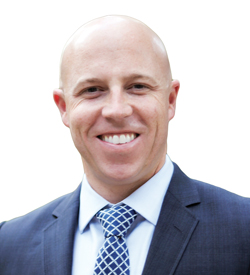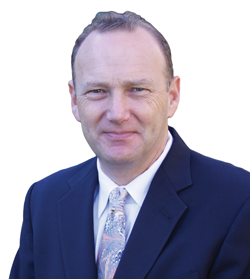 With retail in the throes of a major transition, attendees are expecting a bit of a cloud over this year’s ICSC RECon in Las Vegas, billed as the world’s largest retail real estate event.
With retail in the throes of a major transition, attendees are expecting a bit of a cloud over this year’s ICSC RECon in Las Vegas, billed as the world’s largest retail real estate event.
Certain old friends may not be there. Some deals are “distressed.” But brokers from around the country still look to the annual conference as a bellwether for the year to come.
The International Council of Shopping Centers’ convention, May 21 to 24, is expected to attract its usual 37,000 attendees, according to an ICSC spokesperson. But some longtime attendees are either not going or significantly cutting back on the number of representatives they are sending, citing the slowdown in retail sales.
For others, the conference is still a must. And some first-timers see potential acquisitions on the new playing field.
Those headed out to Las Vegas will, no doubt, be trying to suss out which retailers will pick up the slack as global apparel firms cut back or head into bankruptcy; who is going to buy the distressed debt, and will there be more broker moves?
“I go to find out what I don’t know. What the next big change might be. I see some retail that is creative or clever — or completely wrong,” said Steve Gillman, a partner at Shopping Center Group, a White Plains, N.Y., brokerage, who’s attended since the late 1990s. “It’s not only good information. Bad information can be good information, too.”
Grim outlook
Some retailers that used to send a huge team have backed off from RECon. Payless still had 12 people registered for the show in 2016, when things were already looking desolate for the company. But as of early May, after filing for bankruptcy protection, it had none. Restoration Hardware had seven last year, and this year it had none registered as of early May.

Christopher Hennessy, Shawmut
There was no doubt the reconfiguration within the industry will be felt at the convention.
“The fringe tenant and the fringe owner” may not make it this year, said Daniel Levy, principal at Manhattan-based Ashkenazy Acquisition, which owns retail properties nationally.
But “for us it’s business as usual,” he said. The firm had 20 people registered for the show as of early May. “The people who do this generationally have to go,” Levy said.
However, if brokers are doing fewer deals, they have less money to spend on conventions.
Robin Abrams of the Manhattan-based brokerage Lansco said it’s likely New York City brokers were already being weeded out, and fewer “younger brokers can budget going.” Still, she added: “All my usual suspects are going.”
While the big news is focused on retail’s mainstay tenants closing stores and filing for bankruptcy, Abrams said there are quieter changes happening that will also impact conversations in Vegas.
Tenants are feeling pressured by lower sales or emboldened by weaker tenant demand — sometimes both — and are approaching property owners looking for a break in rents.
“I do know of one situation where rent is being readdressed by one of our tenants,” Abrams said. There are many subtleties involved in such a deal, including the creditworthiness of the tenant and if they have a clause in the lease that allows for cancellation if the tenant fails to hit sales levels.
First-timers
James Sheeder, CEO of Pittsburgh-based financial services firm CrowdAmerica, will be attending ICSC for the first time and is on the lookout for distressed opportunities.
“We have enormous overhang in the economy,” said Sheeder, who believes retail is overbuilt in the U.S. and that owners will need to refinance or sell. “ICSC is ground zero for that type of activity.”
Detroit-based retailer and manufacturer Shinola will boost its presence for its second convention, from one representative to three. The company, which makes watches and bicycles, among other things, opened its flagship in New York’s Tribeca in 2013 and is expected to open about two dozen stores over the next two years.
Shinola COO Heath Carr said the softening rents in New York City have given his brand an opportunity to test the market with a pop-up store.
“We were looking at Soho for a while, but the rents can be intimidating when you are just starting a brand,” Carr said. It plans to open up to three more stores in New York City over the next two to five years.
Future Land, based in Shanghai, had registered 11 people for the show as of early this month. The firm develops residential apartments and commercial buildings all over China.
Other new firms include the brokerage firm C-Store Realty, which represents gas stations and convenience store transactions.

Steve Gillman, Shopping Center Group
The West Coast office of the national construction firm Shawmut Design and Construction is sending a representative for the first time. The firm has sent people from the East Coast for several years.
Ryuichi Hamada, of the Tokyo-based mall owner and developer Forest Mall, is making his first trip to RECon. The 10-year-old firm develops and owns neighborhood shopping centers in his home country but has acquired three in California.
“As part of our business expansion strategy, we have plans to develop [or] invest [in] more shopping centers in the U.S.,” Hamada said in an email.
Few options
Although there are other retail real estate conferences, brokers have limited opportunities to network with deal makers on the scope of ICSC.
“MAPIC is emerging as more of an event, particularly for brokers who are looking to bring new retailers to the U.S.,” said Soozan Baxter, a New York-based retail consultant.
But she viewed the French show as providing a targeted opportunity to brokers in gateway cities like New York and Los Angeles, where overseas tenants typically set up their first stores. For most developers and brokers working all over the U.S., the national and regional ICSC shows are the centers of activity and have no serious competition.
Despite a host of additional retail and marketing conventions, real estate executives are simply not attending them.
This is, in part, because it was unlikely that a brief chat at such an event would come to much.
“The likelihood of being able to convert that into a real estate [deal] is slim to none,” said Baxter, who has attended such events in the past.
Despite the overall somber mood, there remain billions of dollars of demand in deals to be done each year. And people never know where the next deal may come from, one of the attractions of the conference.
“Essentially it’s a networking event,” said Shawmut’s Christopher Hennessy. “A lot of time, real estate developers and brokers, they have a space and they reach out, ‘Hey, would you mind connecting us?’ Oftentimes we, as the [general contractor], present opportunities to our clients through the grapevine.”
